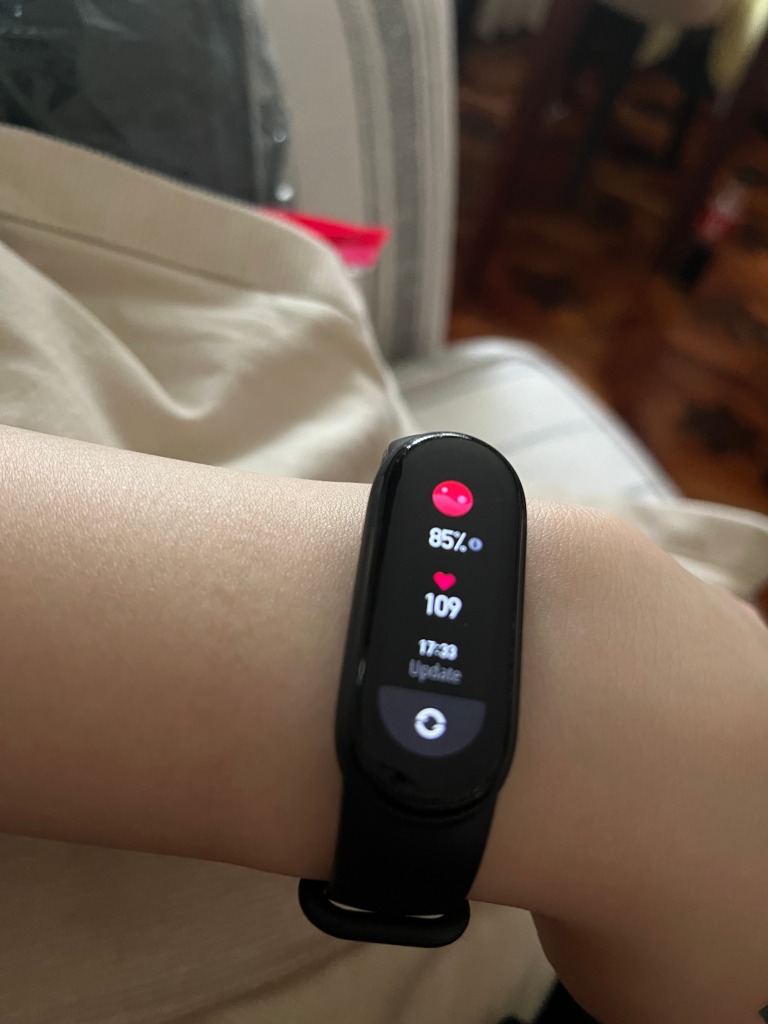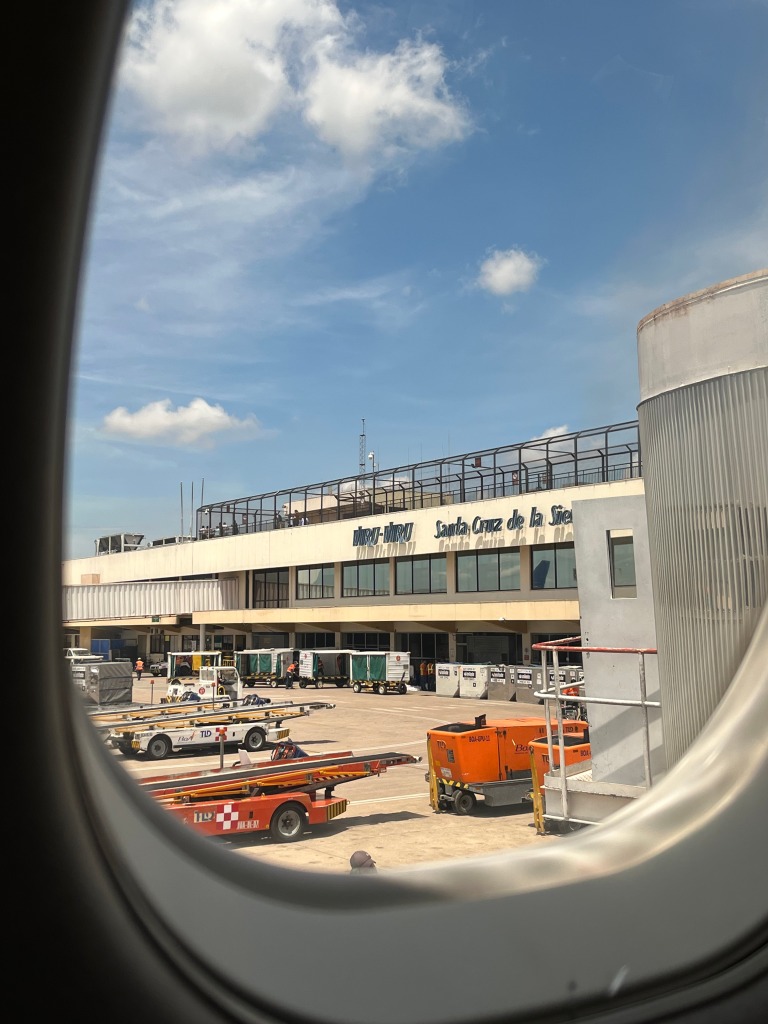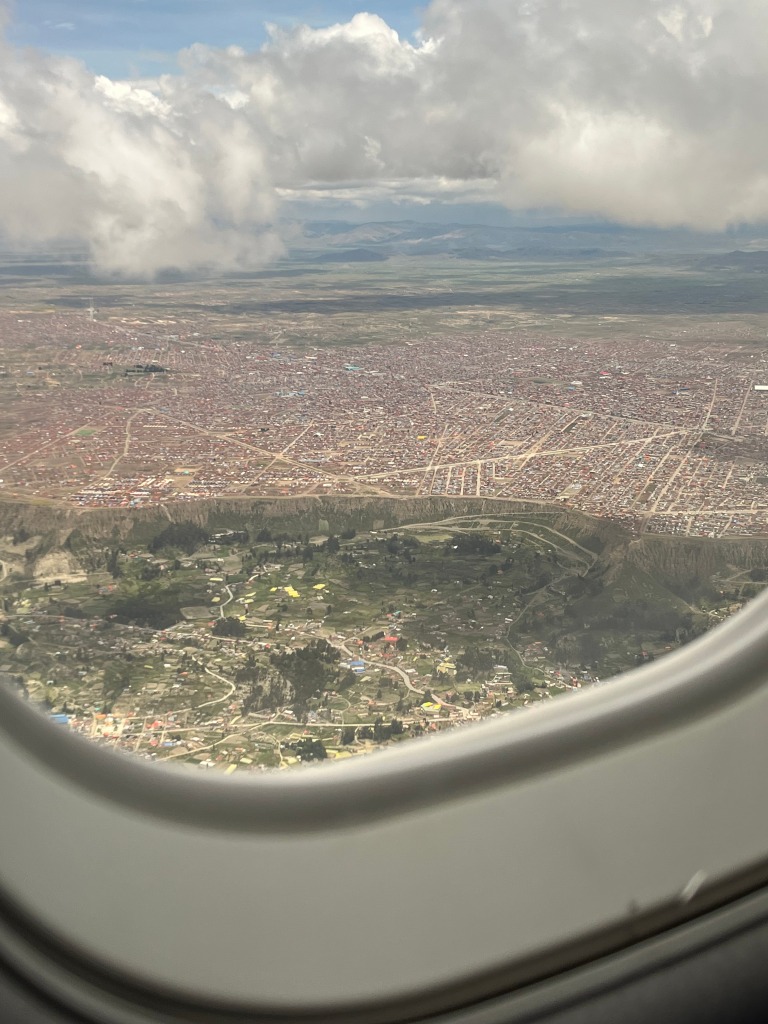
Even though I tried to move as slowly as possible, the second I stepped out of that plane, I felt the decompression.
The first few seconds in that walkway from plane to terminal was like in a dark tunnel. On top of that, everything was not peachy while I had a 10kg backpack on my shoulders. It’s a mix of vertigo, short breath, and headache. It’s quite amazing how the body just catches up with that altitude difference by the second you arrive.
I had to sit down while the baggage was being transported to the terminal. After I got my bag. The long waiting for my taxi driver has begone.
If you arrive at El Alto International Airport at a reasonable time during the day. (Which means not the flight at 2 a.m. from Bogotá). It’s easy to get pretty much everything you need.
Tips: I changed 100 dollars’ worth of bolivianos (normally the changing rate is 1:6,95). All you need is to present your passport and dollar in (reasonably decent) cash.
I also got myself “Sorojchi Pills” from the pharmacy at the arrival terminal. Normally you won’t need more than nine pills, I got myself only six.
Tips: Always tell the pharmacist exactly how many pills you need, otherwise, you’ll get a whole bunch of them which is expensive and won’t be possible to be finished. Costs of those pills is 5 to 6 Bilivianos/capsule. (may verify from place to place)
My taxi driver wasn’t to be found anywhere. I wandered a bit around but finally surrendered to the height endued headache. Cause it’s 4000m above sea level. The light seemed so bright to my nordic retinas. Finally, my “Mujeres al Volante”-driver and I recognized each other pretty much at the same time. She said she was late because of the teacher’s protest in the city.
Tips: “Mujeres al Volante” is a taxi company in La Paz which is founded by mothers in La Paz. All their taxi drivers are women. If you are looking for extra reliable taxi as a solo traveler or at night. It’s a great service to profit.
El Alto used to be one of the districts of the city La Paz, until 1985. Long story short, due to the augmented population and craving for more financial autonomy, El Alto finally decoupled from La Paz. It’s a fascinating place here. On the high ground look down on the tight-packed and rugged La Paz. Every Thursday and Sunday, there’s the biggest market in the world, the market “16 de Julio”, which makes a great way to find nice deals but terrible days to drive through. And that was what I got into. 10 minutes after I got in the traffic, I’ve already decided to archive my brand-new applied international driving license for a long life and future endeavor.
Tips: If you don’t have lots of luggage, you can also take the minibusses, which costs 5 Bolivianos right to the city center (to Plaza Isabel la Católica). The minibus station is to be found on an “island” in front of the arrival terminal if you walk across the taxi waiting line. Those minibuses have „AEREOPUERTO“ printed on them.
I wasn’t capable to grasp the meaning of a “traffic jam” until I found myself in a taxi surrounded by cars and pedestrians from every different direction. Of course, there was no traffic light. Or at least there was no traffic light to be trusted. Constantly there are people knocking on your car, telling you either you’re blocking their way or simply telling you there’s somebody out there. Despite all that, I was deeply amused by the dynamics a city can give. It’s not like that in Northern Europe. Over there people are excited by the “stay silent”-sign in the library (if I may rephrase Jojo Mojes from time to time).
Te divertidas? She asked. Clearly, I couldn’t conceal any of my amusement in the backseats.
My driver “lectured” me about the meanings of different kinds of honks here. Apparently, if it honks loud and repeatedly, it means they want to pass. If it’s a one-time long honk, it means you better go quickly right now……
So, it is. A 30-min-drive was prolonged to almost two hours. I finally got into my Airbnb. The following three days, I was drugged with different kinds of painkillers, including those “Sorojchi pills”, ibuprofen, and rose root pills which my mom mailed me all the way from China to Germany. The second and third day in La Paz was the roughest. Every day I woke up with a headache and the way to the bathroom was tough sometimes. Because I live on a hill, simply walking back home was a test of my personal limit. Every time I climbed up to my apartment drives my heart rate to 170 bpm. And that one time when I got home with black spots in my view, I reached my best (worst) blood-oxygen level of 85%. Seriously thinking about training myself here in Altiplanos. Then one day I’ll be invincible back in the lowlands that I still call home.
Suruqchi is quechua for mal de montaña, aka. altitude sickness. The local people chew dried coca leaves or drink coca tea to ease the symptoms. I’ve never drugged myself before besides alcohol, sugar, and pornography. Friend F said she expected the coca tea would at least light her bit up. The result was rather disappointing. The magical little coca leaves neither made us forget our shameful past nor gave us more strength to face the future that we would trick ourselves into. After all, it does help with Suruqchi.













